I absolutely think that the history of frequent moves, adjusting, new people — all that affects my making today. It takes a lot of courage to be a maker of any kind. It requires many decisions, commitments, and lonely times in your head. The nomadic life built up my courage for new things and change, sort of immunized me to sameness, and made me invite the adventure of mystery and unknown.
All in Vocation
 My work with words is anchored in a belief that an essential charity pervades a marred creation capable of lighting some small path of grace across the page. The world is beautiful and broken, and both need telling as we search for a wholeness in this life. There is a Hebrew phrase for what I’m describing: tikkun olam, which means to repair or fix the world — a call to humanity to collaborate with God in setting things right. Tikkun olam sums up the trajectory of the writer of faith’s vocation.
My work with words is anchored in a belief that an essential charity pervades a marred creation capable of lighting some small path of grace across the page. The world is beautiful and broken, and both need telling as we search for a wholeness in this life. There is a Hebrew phrase for what I’m describing: tikkun olam, which means to repair or fix the world — a call to humanity to collaborate with God in setting things right. Tikkun olam sums up the trajectory of the writer of faith’s vocation.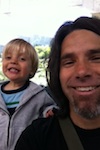 The mountain doesn’t look like the mountain when you’re on it. Often enough, it doesn’t look like much at all. Like standing only a few inches away from one of Georges Seurat’s pieces, all I see are points of color. It’s just dots, at least that’s true to some degree. Yet I’d venture a guess that Seurat was not primarily or initially moved by a vision of tiny marks on a canvas but that he took up the brush and diligently, meticulously made those millions of tiny marks because he was moved by a vision of sand and water or skin and eyes.
The mountain doesn’t look like the mountain when you’re on it. Often enough, it doesn’t look like much at all. Like standing only a few inches away from one of Georges Seurat’s pieces, all I see are points of color. It’s just dots, at least that’s true to some degree. Yet I’d venture a guess that Seurat was not primarily or initially moved by a vision of tiny marks on a canvas but that he took up the brush and diligently, meticulously made those millions of tiny marks because he was moved by a vision of sand and water or skin and eyes.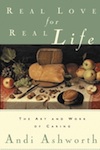 Van Gogh said something like this: “The highest form of art is fashioning human lives.” I’m not sure if that’s the exact quote, but it’s certainly true. You’re creating all the time — creating a mood, creating a meal, making a sick person comfortable, creating a celebration, nurturing compassion, creating a welcome — you’re always making. When our imaginations are captured by the idea of creating good stories in the lives of the people we’ve been given to love, a world of possibility opens up.
Van Gogh said something like this: “The highest form of art is fashioning human lives.” I’m not sure if that’s the exact quote, but it’s certainly true. You’re creating all the time — creating a mood, creating a meal, making a sick person comfortable, creating a celebration, nurturing compassion, creating a welcome — you’re always making. When our imaginations are captured by the idea of creating good stories in the lives of the people we’ve been given to love, a world of possibility opens up.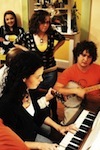 Something within us — though we seek to give an impression of total control — wants an adventure. I’m beginning to understand that this adventure we end up experiencing is different from the one we seek in childhood or in our youth as twenty-somethings. It is not solely world travel, fame, or even the chase of seemingly impossible dreams. The adventure is in community, in sharing life together, and in the natural chaos it brings.
Something within us — though we seek to give an impression of total control — wants an adventure. I’m beginning to understand that this adventure we end up experiencing is different from the one we seek in childhood or in our youth as twenty-somethings. It is not solely world travel, fame, or even the chase of seemingly impossible dreams. The adventure is in community, in sharing life together, and in the natural chaos it brings. If I am compelled to teach because I long to see my students transfigured, then the act of teaching itself will also, in some way, transfigure me. This vocation, if I follow it, will burn out the impurities of heart and soul so that I may, however faintly, carry glory.
If I am compelled to teach because I long to see my students transfigured, then the act of teaching itself will also, in some way, transfigure me. This vocation, if I follow it, will burn out the impurities of heart and soul so that I may, however faintly, carry glory. There is never a simple answer to the question I am frequently asked: “What do you do with your time when not touring or playing music?” Perhaps the better question is, Why do you do what you do? Why cull together (more like cobble) a mishmash income year-in and year-out — each year the same, each one different, each one in hindsight a miracle? The years carry with them the same struggle, the same burden, only clothed in different hides. Some years are grimier, more pungent than others.
There is never a simple answer to the question I am frequently asked: “What do you do with your time when not touring or playing music?” Perhaps the better question is, Why do you do what you do? Why cull together (more like cobble) a mishmash income year-in and year-out — each year the same, each one different, each one in hindsight a miracle? The years carry with them the same struggle, the same burden, only clothed in different hides. Some years are grimier, more pungent than others. That word: struggle.
 We, as creators, need to acknowledge that we are ourselves created, that we are characters in a bigger story. And when we empty ourselves of the responsibility for striking the creative spark, when we understand our “gift” as something given to us, something we don’t deserve and can’t earn, when we open ourselves up and confess our weakness in our own sub-creation, we are open to the perfection of a strength far greater than our own.
We, as creators, need to acknowledge that we are ourselves created, that we are characters in a bigger story. And when we empty ourselves of the responsibility for striking the creative spark, when we understand our “gift” as something given to us, something we don’t deserve and can’t earn, when we open ourselves up and confess our weakness in our own sub-creation, we are open to the perfection of a strength far greater than our own.Returning to a Writing Life
In this season, I’m hoping to find my way with fewer people in the house and more solitude. I’m not naïve enough to expect perfection, but I do need time. As any writer knows, you must show up regularly to get your work done. It must be given priority and long hours of concentration. I write best if I start first thing in the morning, which means pushing everything else aside: walking past the dirty dishes in the kitchen sink, not starting a load of laundry, resisting the urge to restore order in the household, and going directly to my desk.
 I don't mean to satirize mom blogs. As an artist, I live to create beauty and to breathe it in, and I am often inspired by these creative mamas. Neither do I condemn the blogging mamas themselves. After all, I am one of them. I'm no celebrity, but I have definitely projected — through my blog and through my posts — a picture of a beautiful life. I am only suggesting that we think twice about the standard we create when we post only the good stuff.
I don't mean to satirize mom blogs. As an artist, I live to create beauty and to breathe it in, and I am often inspired by these creative mamas. Neither do I condemn the blogging mamas themselves. After all, I am one of them. I'm no celebrity, but I have definitely projected — through my blog and through my posts — a picture of a beautiful life. I am only suggesting that we think twice about the standard we create when we post only the good stuff. There has never been a better moment to be a middle-class or an independently thinking artist making and performing music than right now. The costs and complications of creating, recording, manufacturing, and distributing music are at an all-time low, enabling more music to be made and more artists to make a living than ever before. If your ego can bear not being rich and famous, you can make a respectable and sustainable living as a blue-collar musician. The problem used to be access; now it’s obscurity. And this brings with it a completely new set of problems and opportunities.
There has never been a better moment to be a middle-class or an independently thinking artist making and performing music than right now. The costs and complications of creating, recording, manufacturing, and distributing music are at an all-time low, enabling more music to be made and more artists to make a living than ever before. If your ego can bear not being rich and famous, you can make a respectable and sustainable living as a blue-collar musician. The problem used to be access; now it’s obscurity. And this brings with it a completely new set of problems and opportunities.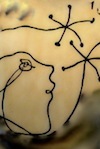 Creative living seeps into the everyday with a flourish of expectancy in the ordinary and has long-lasting impact resulting in legacy, stored in the strata of generational living like fossils in the earth. Impact travels through the freshly plowed path of creative thinking, choosing the less trafficked road instead of the rut of routine and mediocrity.
Creative living seeps into the everyday with a flourish of expectancy in the ordinary and has long-lasting impact resulting in legacy, stored in the strata of generational living like fossils in the earth. Impact travels through the freshly plowed path of creative thinking, choosing the less trafficked road instead of the rut of routine and mediocrity.It integrates personhood, from doing the laundry to painting a masterpiece, on stage or at the stove, over coffee or under the rare showers of life-giving inspiration.
 Reading was an escape, but not an unhealthy one. It didn’t enable me to deny my grief or the strain our family was under. It didn’t distract me from my children or make me wish for another life.
Reading was an escape, but not an unhealthy one. It didn’t enable me to deny my grief or the strain our family was under. It didn’t distract me from my children or make me wish for another life. In fact, the simple act of allowing myself the luxury of literature served to inspire my days with my children. I was a better thinker — more happy, more energized, and more full. Reading served as a wholly reparative act, something that offered renewal at a time when everything felt out of sorts.
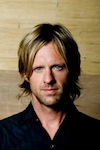 A good teacher is creative. A good computer programmer is creative. A good mom is creative. A good lawyer looks creatively beyond the contingencies of injustice and works to bring a more virtuous existence into being.
A good teacher is creative. A good computer programmer is creative. A good mom is creative. A good lawyer looks creatively beyond the contingencies of injustice and works to bring a more virtuous existence into being.
In fact, the argument could be made that a human being is most God-like when she is most creative, ingeniously crafting the true and the beautiful out of the confines of the present tense. Remixing tomorrow out of the raw materials of today. Re-appropriating a dream into reality.
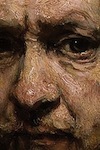 Rembrandt was no dummy. He knew he was a great artist, no question. But he also knew he wasn’t limitless. And one of his apparent limits was his inability to satisfy what people sometimes wanted him to be. This must have been very frustrating at times. Surely there must have been days when he would’ve loved more than anything else in the world to be for another person exactly who they wanted him to be.
Rembrandt was no dummy. He knew he was a great artist, no question. But he also knew he wasn’t limitless. And one of his apparent limits was his inability to satisfy what people sometimes wanted him to be. This must have been very frustrating at times. Surely there must have been days when he would’ve loved more than anything else in the world to be for another person exactly who they wanted him to be.Perseverance, Anxiety, and the Greatness of Small Things
So, after twenty plus years of an open door, we declared a sabbatical.
It was the start of something good. In the press of always taking care of others, we hadn't been taking care of ourselves. Without extra people to feed, we could eat smaller and healthier meals. We also returned to something we love — ending many of our days with a vigorous walk in the trails of a nearby wooded park.
 We had to be honest or risk sitting in awkward silence over tea or the next meal, or, God forbid, be reduced to mere small talk while cleaning bathrooms together. Because of these interpersonal hurdles that could only be cleared with grace and mercy, I felt a quiet confidence growing in me, and my ability to listen and tend to the needs of others broke away from my need to have control or be independent. This, we found in the end, is the real bread and butter of communal life — forced honesty and a corporate desire to do more than merely share space and chores kept gossip at bay and challenged us to speak truth in love.
We had to be honest or risk sitting in awkward silence over tea or the next meal, or, God forbid, be reduced to mere small talk while cleaning bathrooms together. Because of these interpersonal hurdles that could only be cleared with grace and mercy, I felt a quiet confidence growing in me, and my ability to listen and tend to the needs of others broke away from my need to have control or be independent. This, we found in the end, is the real bread and butter of communal life — forced honesty and a corporate desire to do more than merely share space and chores kept gossip at bay and challenged us to speak truth in love.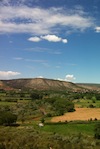 I look forward every year now to the Glen Workshop for much the same reason, knowing that it will heal me in ways I didn’t even know I was broken. Knowing that I become more like the person I want to be after a week there. I know that the whole week will serve as a call to pay attention, that we will be offered continual reminders that maybe, just maybe, beauty will save the world.
I look forward every year now to the Glen Workshop for much the same reason, knowing that it will heal me in ways I didn’t even know I was broken. Knowing that I become more like the person I want to be after a week there. I know that the whole week will serve as a call to pay attention, that we will be offered continual reminders that maybe, just maybe, beauty will save the world. I am too early on this journey to say what will come of it — whether or not my artistic insecurities or competitive aspirations will show up again and steal my joy, or if I can reconcile the fact that there will be days when I read nothing of worth, when all I do is play pat-a-cake and write grocery lists, and days when I read well and with purpose, when I write (even if it is just a sentence) something that makes me proud and reminds me who I am.
I am too early on this journey to say what will come of it — whether or not my artistic insecurities or competitive aspirations will show up again and steal my joy, or if I can reconcile the fact that there will be days when I read nothing of worth, when all I do is play pat-a-cake and write grocery lists, and days when I read well and with purpose, when I write (even if it is just a sentence) something that makes me proud and reminds me who I am.Letter to a Young Musician
You've chosen a noble vocation. Or, perhaps music has chosen you? That's even better. An invitation is preferable to a cold call.
At all times and in all ways, you must relentlessly pursue success. That is, as long as success is defined as increased skill and ability, imagination, humility, generosity of spirit, good humor, gratitude, innovation, love, and empathy, and becoming more like Jesus, not less. Your life as a musician is an invitation to become one kind of person in the world and not another, while leaving the world a better place than when you first arrived. It is a unique calling to live a seamless, integrated, creative life before God and the world, cultivating and enjoying the gift of music. Take it seriously . . .


















